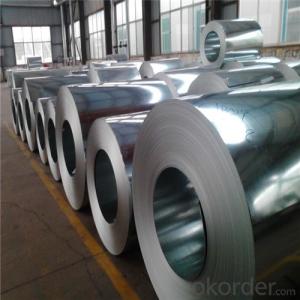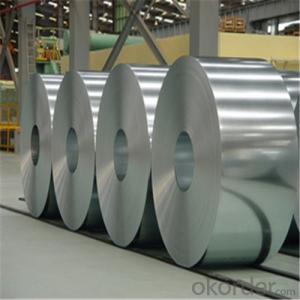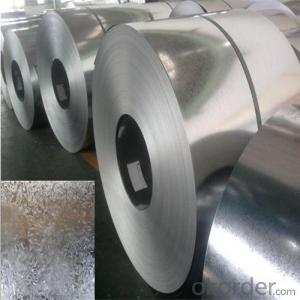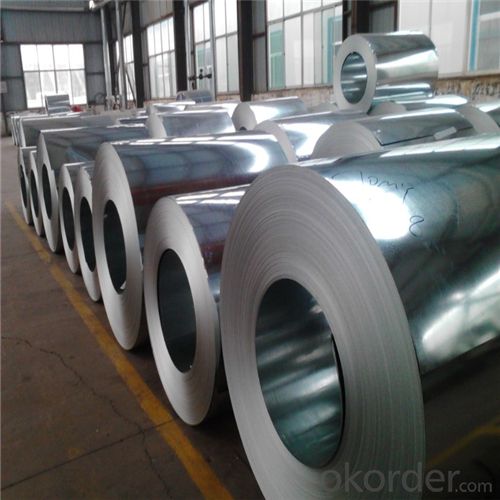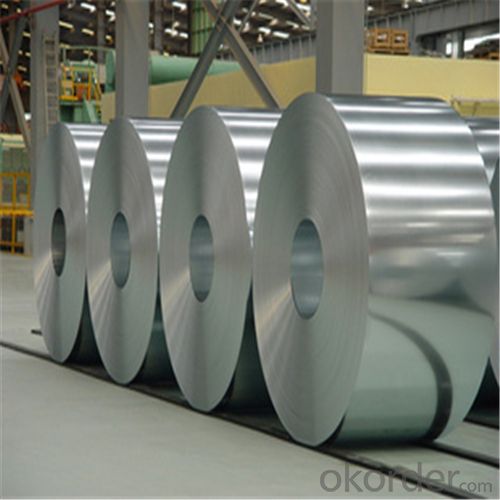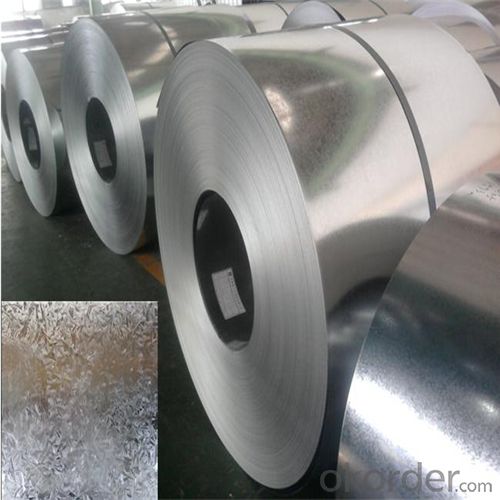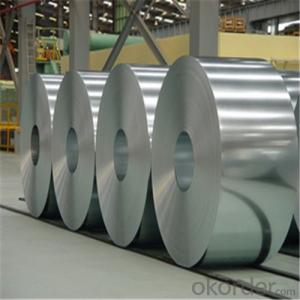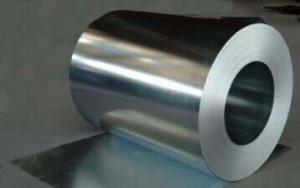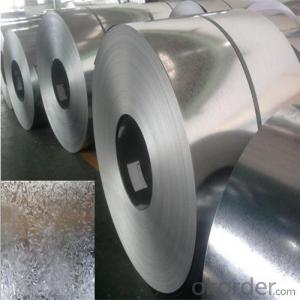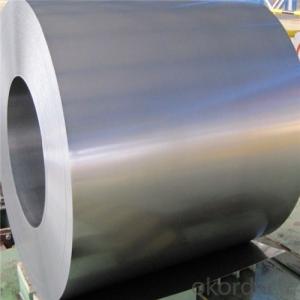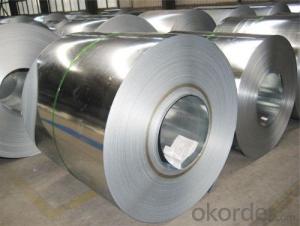Hot-Dip Galvanized Steel Coil Used for Industry with Our Quality
- Loading Port:
- Shanghai
- Payment Terms:
- TT OR LC
- Min Order Qty:
- 25 m.t.
- Supply Capability:
- 10000 m.t./month
OKorder Service Pledge
OKorder Financial Service
You Might Also Like
Specification
Hot-Dip Galvanized Steel Coil Used for Industry
1.Structure of Hot-Dip Galvanized Steel Coil Description
The hot-dip process is the process by which steel gets coated in layers of zinc to protect against rust. It is especially useful countless outdoor and industrial applications.
2.Main Features of the Hot-Dip Galvanized Steel Coil
•High Purity
•Easy control and operation
•High strength
•Fast melting
•Competitive price
•Best Service
3. Hot-Dip Galvanized Steel Coil Images
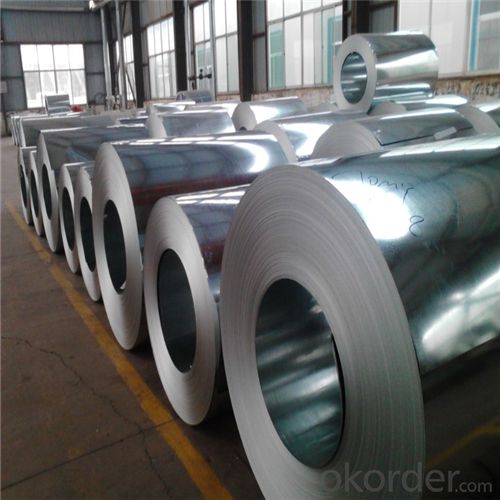
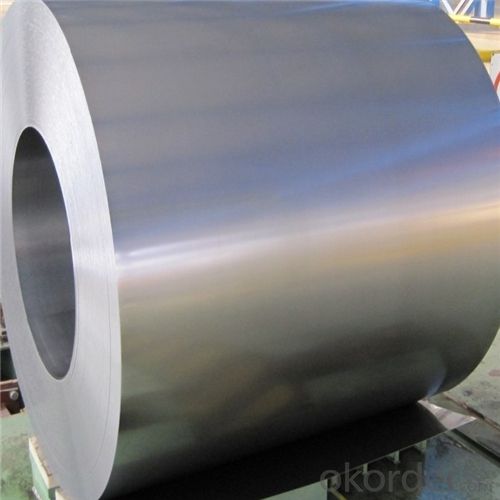
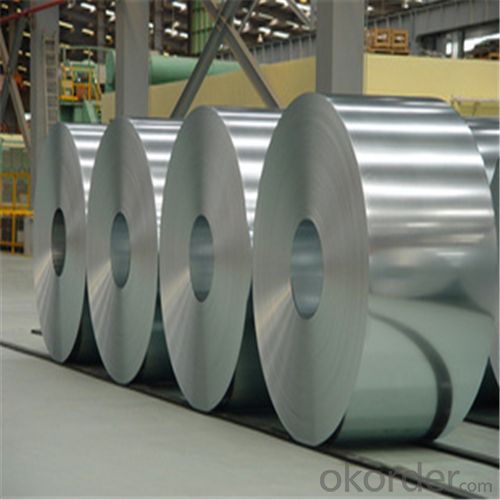
4. Hot-Dip Galvanized Steel Coil Specification
Hot-Dip Galvanized Steel Coil | |
Thicknenss | 0.10mm-5.00mm |
Width | 2000mm max |
Coating mass | 30-600g/㎡ |
Spangle | Regular/Minimized/Zero Spangle |
Coil inner diameter | 508-610mm |
Surface treatment | Chromated/non chromated, Oiled/non oiled, Anti finger print |
5.FAQ of Hot-Dip Galvanized Steel Coil
We have organized several common questions for our clients,may help you sincerely:
①How about your company?
Annually more than 8000 tons Precision casting and forging parts are exported to markets in Europe,America and Japan. OEM casting and forging service available according to customer’s requirements.
②How to guarantee the quality of the products?
We have established the international advanced quality management system,every link from raw material to final product we have strict quality test;We resolutely put an end to unqualified products flowing into the market. At the same time, we will provide necessary follow-up service assurance.
③How long can we receive the product after purchase?
In the purchase of product within three working days, We will arrange the factory delivery as soon as possible. The pecific time of receiving is related to the state and position of customers.Commonly 7 to 10 working days can be served.
Hot-dip galvanized steel coils are available with a pure zinc coating through the hot-dip galvanizing process. It offers the economy, strength and formability of steel combined with the corrosion resistance of zinc. The hot-dip process is the process by which steel gets coated in layers of zinc to protect against rust. It is especially useful countless outdoor and industrial applications.
- Q: What are the different types of steel coil surface coatings?
- Steel coils can be enhanced in terms of durability, corrosion resistance, and aesthetic appearance through the use of various types of surface coatings. The most commonly employed coatings are as follows: 1. Zinc Coatings: These are widely utilized to safeguard steel against corrosion. A layer of zinc is applied to galvanized steel coils, acting as a barrier against moisture and other environmental elements. 2. Galvannealed Coatings: This type of coating combines zinc and iron, providing improved corrosion resistance and enhancing paint adhesion. It is ideal for applications that require painting. 3. Aluminum Coatings: Aluminum coatings are employed to achieve a lightweight and corrosion-resistant surface. Steel coils coated with aluminum are frequently utilized in the automotive industry for body panels and other parts that require high strength and corrosion resistance. 4. Organic Coatings: Organic coatings, typically in the form of paint or powder coatings, offer protection against corrosion. They also provide a wide range of color options for aesthetic purposes. In the construction industry, they are commonly used for roofing and cladding applications. 5. Metallic Coatings: Metallic coatings such as tin, nickel, and chromium can be applied to steel coils to confer specific properties, such as improved electrical conductivity, increased hardness, or enhanced resistance to wear and tear. 6. Ceramic Coatings: Ceramic coatings are employed to achieve high-temperature resistance and thermal barrier properties. They find application in situations where steel coils are exposed to extreme heat or in industrial processes that require thermal insulation. Each type of coating possesses unique properties and advantages, and the selection of a suitable coating depends on the specific requirements of the application. Manufacturers and engineers carefully consider factors such as cost, durability, corrosion resistance, and aesthetic appeal when deciding on the appropriate coating for steel coils.
- Q: I want to buy steel. My problem is i purchase it from a middle man, so i need to know what MIld steel is. What it's real name or specifications is/are. I dont want to end up purchasing Black steel or other stuff i can sell or use...
- I am a Blacksmith,mild Steel is what I use every Day,I make Ornamental Ironworks,like Handrails,Gate,Candle holders,all kind of things,most things are made from mild Steel,even Buildings,Doors,and so on.No risk of buying it.Special Steel is just for Special Applications.
- Q: Guitar?I have a steel- string, but prefer nylon.:)
- I like the sound of steel better, sweetie! But nylon is nice too, especially if you wanna play, but you don't want to disturb others!
- Q: Can steel coils be used in the manufacturing of machinery and equipment?
- Yes, steel coils can be used in the manufacturing of machinery and equipment. Steel coils have high strength and durability, making them suitable for various applications in the machinery and equipment industry. They can be shaped, cut, and formed into various components, such as frames, shafts, gears, and structural parts, to meet the specific requirements of different machinery and equipment. Additionally, steel coils can be further processed and treated to enhance their properties, such as through heat treatment or surface coatings, to improve their performance and longevity in the manufacturing process.
- Q: What are the common certifications required for steel coils?
- The certifications needed for steel coils differ based on the industry and purpose of the coils. However, there are various certifications that are commonly requested. 1. ISO 9001: This certification ensures that the manufacturer has established a quality management system that meets global standards. It confirms that the manufacturer has the necessary procedures and controls in place to consistently produce high-quality steel coils. 2. ISO 14001: This certification concentrates on environmental management systems. It guarantees that the manufacturer is dedicated to minimizing its environmental impact and reducing waste during the production process. 3. ISO 45001: This certification relates to occupational health and safety management systems. It ensures that the manufacturer has implemented measures to safeguard the health and safety of its employees and stakeholders. 4. ASTM International Standards: The American Society for Testing and Materials (ASTM) has introduced various standards for steel coils. These standards include chemical composition, mechanical properties, and dimensional tolerances. Adhering to these standards guarantees that the coils meet the specified requirements and are suitable for their intended use. 5. EN Standards: The European Committee for Standardization (CEN) has developed a series of standards for steel coils, known as EN standards. These standards cover similar aspects as ASTM standards but are specific to the European market. 6. JIS Standards: The Japanese Industrial Standards (JIS) are widely used in the steel industry in Japan and other Asian countries. Complying with JIS standards ensures that the coils meet the specific requirements of the Japanese market. 7. Certifications specific to products: Depending on the application of the steel coils, additional certifications may be necessary. For instance, if the coils are intended for automotive use, certifications like ISO/TS 16949 (Quality Management Systems for the Automotive Industry) may be required. It is crucial to note that the specific certifications needed may differ based on the region, industry, and customer requirements. Manufacturers should consult their customers and industry standards organizations to determine the exact certifications necessary for their steel coils.
- Q: What are the common methods of cutting steel coils?
- The common methods of cutting steel coils include shearing, slitting, and laser cutting. Shearing involves using a machine with two blades to cut through the coil. Slitting involves passing the coil through a set of rotating circular blades to create narrower strips. Laser cutting uses a high-powered laser beam to cut through the steel coil with precision.
- Q: How are steel coils used in the production of electrical systems?
- Steel coils are used in the production of electrical systems as they serve as the core component of transformers and inductors. They provide a magnetic field necessary for the efficient functioning and transformation of electrical energy.
- Q: How are steel coils used in the production of steel containers?
- Steel coils are an essential component in the production of steel containers. These coils, made from flat-rolled steel, are used to create the main body of the container. Firstly, the steel coils are unwound and fed into a rolling mill, where they undergo a series of processes to shape and form the steel. This includes heating the coils to a specific temperature to make them more malleable and easier to work with. The hot coils are then passed through a series of rollers that gradually reduce their thickness and lengthen them to the desired size. This process is known as hot rolling. Once the steel coils have been rolled to the required thickness, they are then cooled and cut into sheets. These sheets are then further processed to remove any imperfections or irregularities, ensuring a smooth and uniform surface. This is done through processes such as pickling, where the sheets are treated with acid to remove any scale or rust, and cold rolling, where the sheets are passed through rollers at room temperature to achieve the desired thickness and surface finish. After the sheets have been cleaned and smoothed, they are then formed into the shape of the container. This is typically done through a process called stamping, where the steel sheets are pressed into a mold using a hydraulic press. The mold determines the shape and size of the container, and the steel sheets are pressed against it with immense force, resulting in the desired container shape. Once the containers have been formed, they undergo various finishing processes such as welding, painting, and coating to enhance their durability, appearance, and resistance to corrosion. These final touches ensure that the steel containers are of high quality and meet the required standards for their intended use. In summary, steel coils play a crucial role in the production of steel containers by providing the raw material from which the containers are formed. Through a series of processes, the steel coils are shaped, cut, and formed into sheets, which are then further processed and transformed into the desired container shape. The result is a durable and reliable steel container that can be used for various applications across industries.
- Q: What is future prospect of these steel structures, are they really weather proof like everyone believes??
- Yes okorder /
- Q: What are the different coil surface finishes?
- Some of the different coil surface finishes include plain, polished, brushed, embossed, and coated.
Send your message to us
Hot-Dip Galvanized Steel Coil Used for Industry with Our Quality
- Loading Port:
- Shanghai
- Payment Terms:
- TT OR LC
- Min Order Qty:
- 25 m.t.
- Supply Capability:
- 10000 m.t./month
OKorder Service Pledge
OKorder Financial Service
Similar products
Hot products
Hot Searches
Related keywords
